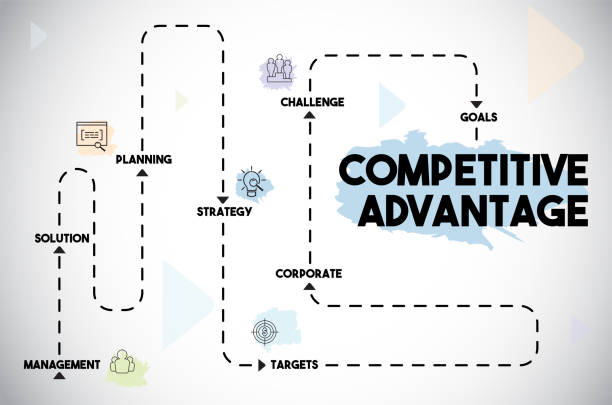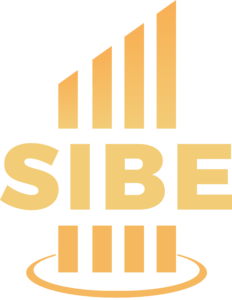Business planning is a fundamental aspect of any successful enterprise, regardless of its size, industry, or stage of growth. And it is quite disheartening that most people think of business plans as just for startups or to source funding from banks or investors.
The truth is, the benefits of business planning are numerous, and at their core, they provide a roadmap for business owners and stakeholders, guiding their decisions and actions toward achieving long-term goals.
Recent studies show that most of the common reasons why businesses fail can mostly be averted with proper business planning, which is why you need to plan. Running a business without a business plan is like driving on an unfamiliar road without a map or any guidance. You will be able to drive, but are you on the right path, or are you going too fast and about to hit a pothole that you were unaware even existed?
In this article, we will explore 13 proven benefits of business planning and how it contributes to the success and sustainability of businesses in today’s competitive landscape.
1. Increased Clarity
Having a clear vision is essential for any business. A well-crafted business plan helps articulate the purpose, values, and long-term vision of the business or organization. Since it serves as a guiding light, aligning stakeholders and employees toward a common objective.
With a business plan in motion, you will be navigating an unfamiliar road with a roadmap. Also, you will be informed of the potential speed bumps and potholes ahead that may threaten the success of your journey should you run into them.

2. Setting Milestones & Objectives
Business planning allows owners to set SMART objectives (Specific, Measurable, Achievable, Relevant, Time-bound) that serve as milestones for progress. These objectives provide a tangible framework to measure success and guide decision-making.
For instance, a retail business might set an objective in its business plan to increase sales by 10% within the next quarter by launching a targeted marketing campaign and expanding its online presence. Setting objectives and achieving them draws you closer to your goals.
3. Identifying Opportunities and Risks
Thorough market research and analysis are integral components of business planning. By assessing market trends, customer needs, and competitor landscapes, businesses can identify potential opportunities and risks.
For instance, a restaurant owner analyzing the local market may discover an underserved niche for healthy fast-food options, providing an opportunity to capture a specific customer segment and gain a competitive edge.
4. Financial Management
Effective financial management is crucial for business sustainability. Business planning allows owners to create realistic financial forecasts, budgets, and projections, helping them manage cash flow, allocate resources efficiently, and make informed financial decisions.
This disciplined approach to financial management reduces the risk of overspending, ensures profitability, and enhances the chances of long-term success.

5. Securing Financing
When seeking external funding or attracting investors, a well-structured business plan becomes a valuable tool. It demonstrates the viability of the business model, its growth potential, and the expected return on investment.
A clear and concise plan increases the chances of securing financing and building partnerships. With a detailed business plan, potential lenders or investors can evaluate the business’s market positioning, competitive advantage, and revenue projections to assess its attractiveness as an investment opportunity.
6. Resource Allocation
Optimal resource allocation is vital for maximizing productivity and minimizing waste. A well-developed business plan helps identify the resources required for various business functions, including human resources, technology, equipment, and capital.
By understanding resource needs and aligning them with strategic goals, businesses can efficiently allocate resources, reducing unnecessary expenses and enhancing operational efficiency.
7. Market Analysis
A comprehensive market analysis is a key element of effective business planning. It involves evaluating the market size, target audience, customer preferences, and competitive landscape. By understanding customer needs and preferences, businesses can tailor their products or services to meet market demands effectively.
Meaning, if the market analysis is done right, your products will be ones that people need and would want to patronize.
For example, an e-commerce startup targeting the fashion industry may conduct market analysis to identify emerging fashion trends and customer preferences. This will enable them to curate a product portfolio that resonates with their target audience.
8. Competitive Advantage
In today’s competitive business environment, having a unique selling proposition (USP) is vital. A well-crafted business plan allows businesses to identify their competitive advantage and develop strategies to differentiate themselves from competitors.

This could be through product innovation, superior customer service, cost leadership, or proprietary technology. By leveraging their competitive advantage, businesses can attract customers, build brand loyalty, and sustain long-term growth.
9. Adaptability and Flexibility
Business environments are dynamic, and planning is essential to adapting and responding to changes effectively. A robust business plan provides a framework for monitoring progress, evaluating market conditions, and adjusting strategies as needed.
For example, a software development company might identify a shift in customer preferences toward mobile applications and modify its business plan to align with this trend, ensuring its offerings remain relevant and in demand.
10. Team Alignment
A well-communicated business plan fosters alignment and cohesion among team members. When employees understand the company’s goals, objectives, and strategies, they become more engaged and motivated. This alignment creates a unified workforce working toward a common vision, leading to increased productivity and improved outcomes.
Regular communication and feedback channels within the organization help ensure that employees understand their roles and contributions to the overall business objectives.
11. Decision Making
In the absence of a clear plan, decision-making can become reactive and inconsistent. A business plan provides a structured framework for making informed decisions. By evaluating options, assessing risks, and considering the impact on strategic goals, business owners can make decisions that align with the long-term vision of the business or organization.
Being guided in your decision-making process reduces uncertainty, mitigates risks, and increases the likelihood of achieving desired outcomes.
12. Performance Tracking
A business plan serves as a benchmark for measuring performance against set objectives. By regularly monitoring key performance indicators (KPIs) and comparing them to the planned targets, businesses can identify areas that need improvement and take corrective actions promptly.

For example, a manufacturing company can track its production efficiency, quality metrics, and customer satisfaction to identify bottlenecks and implement process improvements, ensuring continuous growth and customer satisfaction.
13. Business Growth and Expansion
Continual planning is vital for sustained business growth and expansion. It helps businesses identify growth opportunities, develop strategies for expansion, and adapt to changing market conditions. By analyzing market trends, consumer behavior, and emerging technologies, businesses can proactively position themselves for growth.
For example, a local bakery with a well-executed expansion plan may identify opportunities to open new branches, explore franchising options, or expand its product offerings to reach a broader customer base.
Key Takeaways – Benefits of Business Planning For All Business Types
To sum up, the numerous benefits of business planning are applicable to all types of businesses, regardless of their size or industry.
From providing a clear vision and setting objectives to identifying opportunities, securing financing, and fostering adaptability, a well-crafted business plan serves as a roadmap for success.
It helps businesses navigate the complexities of the market, make informed decisions, allocate resources efficiently, and achieve long-term growth and sustainability.
By incorporating business planning into their core practices, business owners can position their businesses and organizations for success and overcome challenges along the business cycle.





